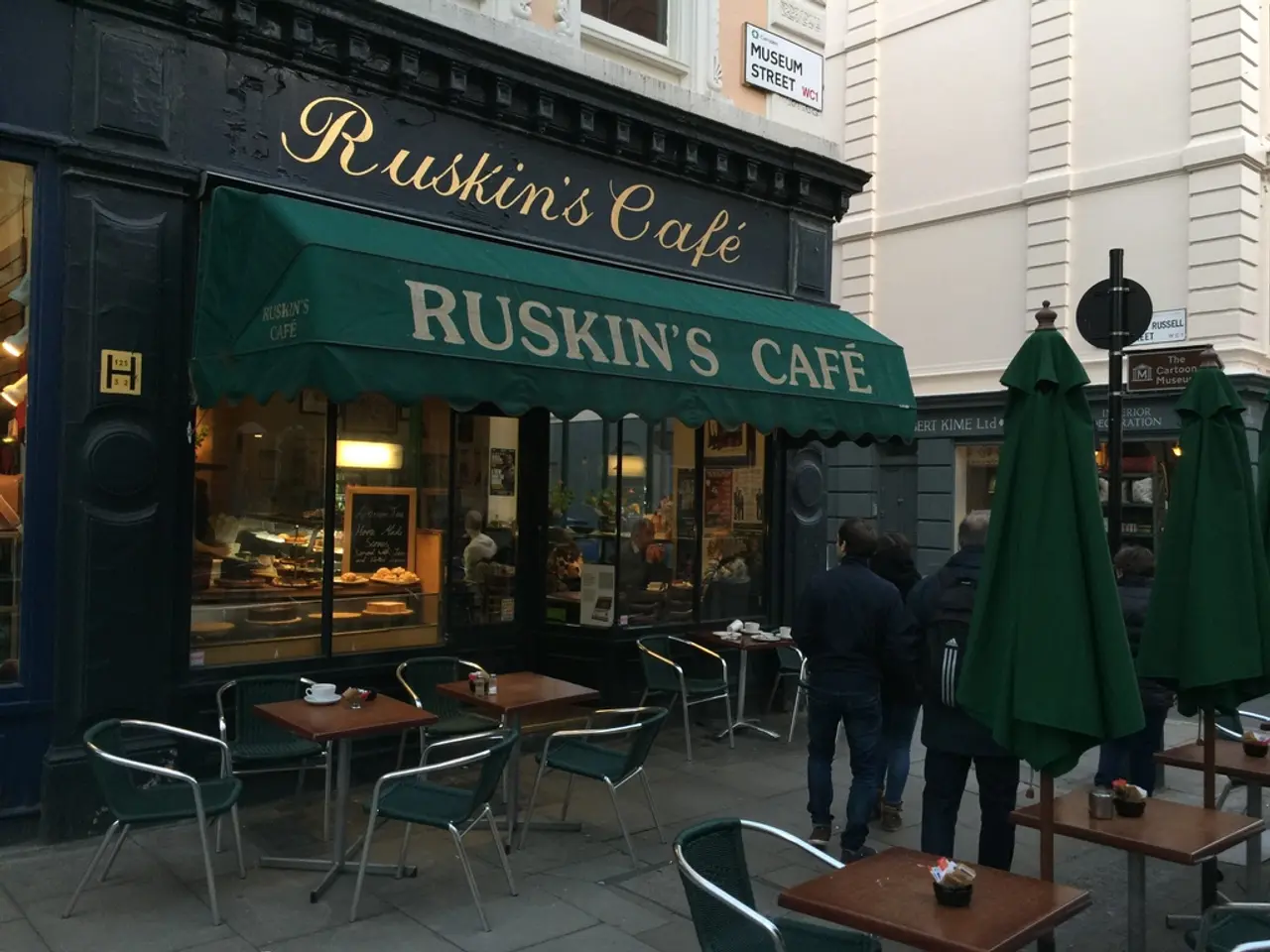Japanese Desserts, Exquisitely Prepared, Thrive in the Serene Ikebukuro Haven
==================================================================================================
In the bustling district of Ikebukuro, Tokyo, lies a hidden gem - Chanoma, a traditional Japanese cafe nestled in a picturesque garden within a 70-year-old kominka (traditional Japanese house). This serene haven, serving as the nucleus of the Nishi Ike Valley project, is more than just a cafe; it's a cultural space that embodies the essence of traditional Japanese aesthetics, community spirit, and a refined tea experience.
The name Chanoma, a combination of the Japanese words for tea (cha) and space (ma), reflects the cafe's aim to embody the intimate atmosphere of a traditional Japanese living room where family members gather around tea. This charming cafe, designed by Sudō Tsuyoshi's design studio, boasts a comfortable, half-indoor, half-outdoor environment that seems to charm visitors from both Japan and overseas.
The unique features of Chanoma include its traditional architecture and atmosphere, with tatami mats, a tokonoma alcove, and a view of a seasonal garden. The garden, meticulously planted with fruit-bearing trees and plants that change with the seasons, attracts butterflies and requires continuous care by gardeners, creating a small community around the café.
The menu at Chanoma is simple and carefully curated, featuring various coffees, seasonal terrines that often sell out by afternoon, and a well-made matcha latte using Wazuka-grown tea, priced around ¥600. The Nōkō Matcha Terrine, topped with whipped cream flavored with smoked hōjicha, and the Hōjicha Latte are highly recommended.
Chanoma has become a hub for community and ritual, attracting visitors who appreciate its tranquil atmosphere. Some overseas guests have even made daily morning visits a routine, bringing different friends each day. In the evenings, Chanoma hosts keiko, or tea-ceremony practice sessions, further linking the café to traditional Japanese tea culture.
The Nishi Ike Valley, developed by Chanoma's owner, Fukano, aims to create a greenery-wrapped commercial complex. In May 2025, a new residential building with tenants like restaurants, a gym, and a work-share space was completed within the Nishi Ike Valley grounds. The 2023 Nishi Ike Valley fair attracted over 200 children to enjoy various activities.
Chanoma, with its wooden gate dating back to the mid- to late-nineteenth century, stands out as a preserved cultural space in vibrant Ikebukuro. It's a must-visit for anyone seeking a quiet, green oasis amidst the city's hustle and bustle.
For more information, please visit Chanoma's website. Chanoma is located in a tree-filled garden in a traditional-style house that is around 80 years old. The cafe is open from 11:00 AM to 7:00 PM, closed on Tuesdays and Wednesdays. It can be accessed via the JR Yurakucho Line's Ikebukuro Station or the Tokyo Metro Yurakucho Line's Ikebukuro Station.
- The tranquil atmosphere of Chanoma, a traditional Japanese cafe in Ikebukuro, Tokyo, connects visitors not only to traditional Japanese aesthetics but also to a community that shares a love for food-and-drink, lifestyle, and events.
- Chanoma's unique environment, blending traditional Japanese architecture with a seasonal garden, provides an opportunity to share photos of a hidden gem, showcasing Japan's rich heritage and connection to nature.
- The Nishi Ike Valley project, home to Chanoma, expands beyond the cafe to include travel destinations, such as a greenery-wrapped commercial complex with restaurants, a gym, and a work-share space, offering a holistic experience of home-and-garden, business, and lifestyle.
- As a hub for community and ritual, Chanoma hosts keiko, or tea-ceremony practice sessions, encouraging the sharing of traditional Japanese tea culture and the connection to its roots within the environment.
- Sharing the experience of Chanoma can be as simple as recommending the Nōkō Matcha Terrine or the Hōjicha Latte to fellow food-and-drink enthusiasts, further connecting them to the culture and lifestyle of Ikebukuro, Tokyo.





